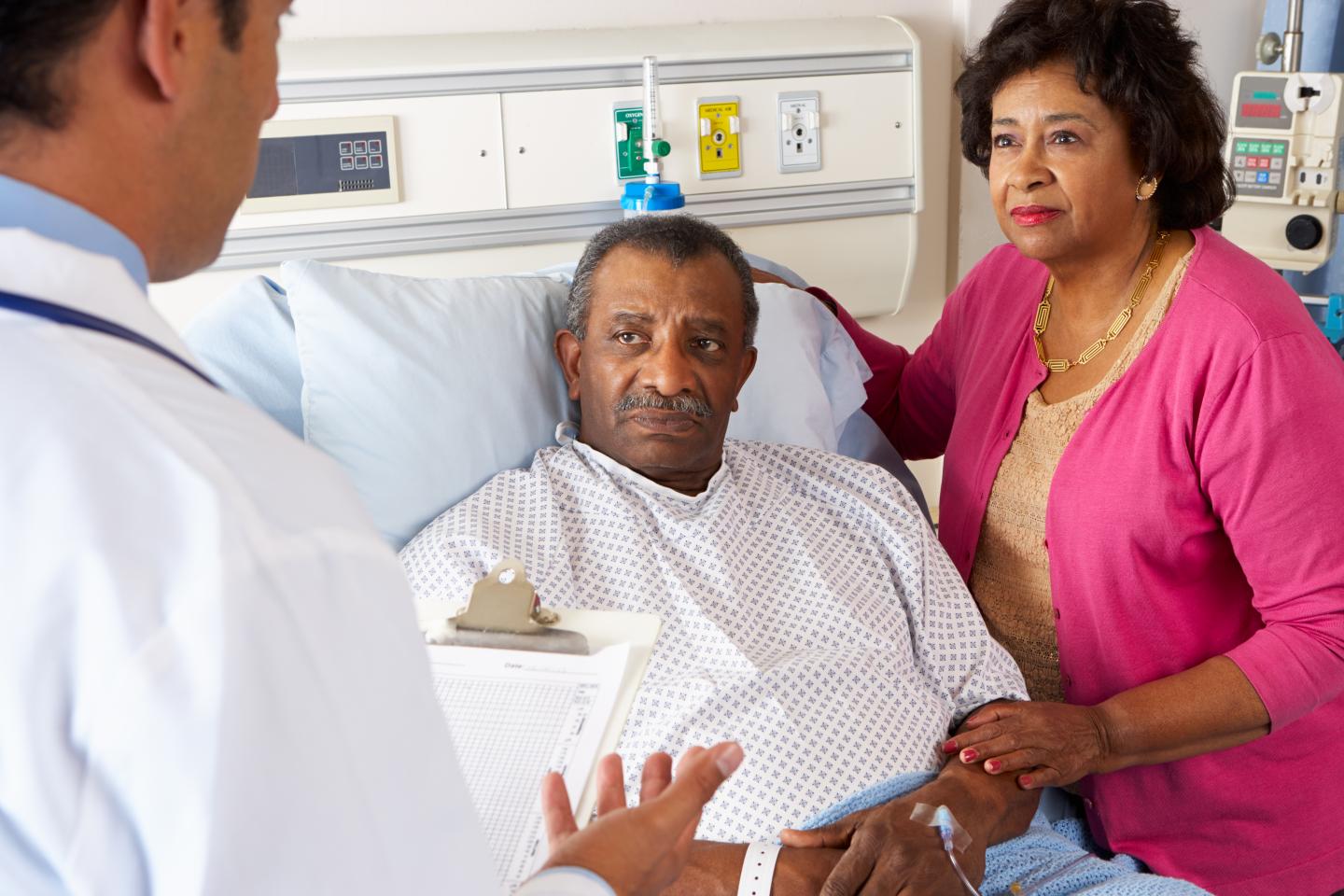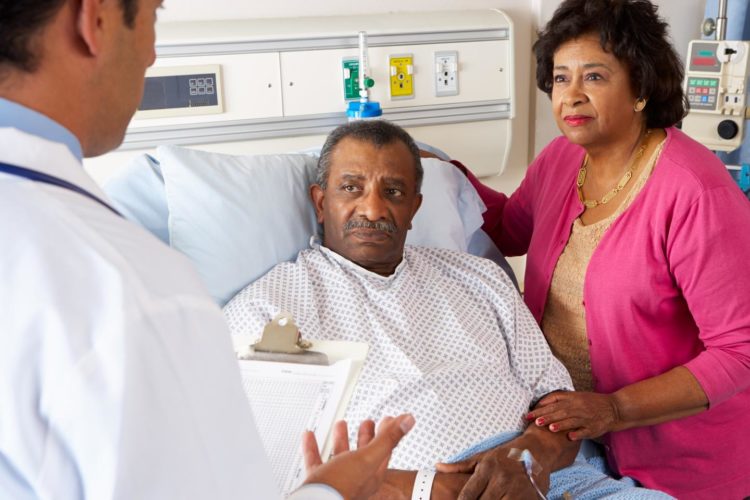
Credit: ATS
Nov. 1, 2019–Only about 6 in 10 lung cancer patients in the United States receive the minimal lung cancer treatments recommended by the National Comprehensive Cancer Network guidelines, according to new research published online in the Annals of the American Thoracic Society.
In “Disparities in Receiving Guideline-Concordant Treatment for Lung Cancer in the United States,” Erik F. Blom, MD, and colleagues report that the likelihood of receiving the minimal treatments is even lower for black patients and the elderly. The researchers based their findings on an analysis of 441,812 lung cancer cases diagnosed between 2010-2014 in the National Cancer Database.
“Comparability and generalizability of previous findings on this topic were limited,” said Dr. Blom, a researcher in the Department of Public Health at the Erasmus MC University Medical Center Rotterdam in the Netherlands, who had a guest affiliation with the University of Michigan for this project. “We felt that it is important to investigate whether these disparities persist, and whether they extend to all clinical subgroups of lung cancer patients.”
An alliance of leading cancer centers, the National Comprehensive Cancer Network has established clinical guidelines for treating both non-small cell lung cancer and small cell lung cancer. Together, the two types of lung cancer are the leading cause of cancer deaths in the U.S.
The guidelines account for the stage of the disease when diagnosed and recommend more aggressive treatment of lung cancer in its early stages. Treatment for lung cancer includes surgery, chemotherapy, conventional radiotherapy and stereotactic body radiation therapy, a specialized and precise type of radiotherapy that delivers high doses of radiation to small, well-defined tumors. Depending on the type of lung cancer and its stage, the guidelines may recommend combinations of these therapies.
The researchers found that, among the patients in the database, 62.1 percent received guideline-concordant treatment, 21.6 percent received no treatment and the remainder received treatment that was less intensive than recommended. Conventional radiotherapy only was among the most common less-intensive-than recommended therapy across all stages of both cancers.
Those with advanced non-small cell lung cancer were the least likely to receive guideline-concordant treatment. The researchers stress the importance of communicating to patients that the benefits of cancer treatment for advanced disease, such as chemotherapy, can extend beyond survival to quality of life and symptom control.
After adjusting for factors that might have biased results, black patients were only 78 percent as likely to receive the minimum treatment compared to those who were white. Those aged 80 and older were only 12 percent as likely to receive the minimum treatment compared to those under the age of 50.
Study limitations include the fact that the database included no information about patient preferences or whether they were too sick to receive more intensive cancer treatment.
“While these findings are very concerning, it has always been easier to identify disparities in care than it has been to understand why they persist,” said study co-author Douglas Arenberg, MD, professor of medicine and a pulmonologist at the University of Michigan. “There may be good reasons why less intensive treatment is in fact medically appropriate. The National Cancer Database does not include that level of detail.”
Still, Dr. Blom said, awareness of which patient groups are at risk of receiving less treatment than recommended could be a first step towards creating targeted interventions to improve cancer care.
###
About the Annals of the American Thoracic Society
The AnnalsATS is a peer-reviewed journal published by the American Thoracic Society. The Journal delivers up-to-date and authoritative coverage of adult and pediatric pulmonary and respiratory sleep medicine and adult critical care. The scope of the Journal encompasses content that is applicable to clinical practice, the formative and continuing education of clinical specialists and the advancement of public health. The journal’s impact factor is 4.026.
Editor: Colin Cooke, MD, MS, associate professor in the department of internal medicine at the University of Michigan.
About the American Thoracic Society
Founded in 1905, the American Thoracic Society is the world’s leading medical association dedicated to advancing pulmonary, critical care and sleep medicine. The Society’s 15,000 members prevent and fight respiratory disease around the globe through research, education, patient care and advocacy. The ATS publishes three journals, the American Journal of Respiratory and Critical Care Medicine, the American Journal of Respiratory Cell and Molecular Biology and the Annals of the American Thoracic Society.
The ATS will hold its 2020 International Conference, May 15-20, in Philadelphia, Pennsylvania, where world-renowned experts will share the latest scientific research and clinical advances in pulmonary, critical care and sleep medicine.
Media Contact
Dacia Morris
[email protected]
212-315-8600





